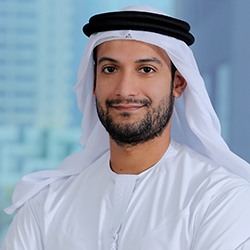Doing business in United Arab Emirates (UAE)
By M&CO LegalWe start with the very basic requirements of a conducive environment for doing business and the reasons why UAE is quickly emerging as the most attractive investment destination for the global investors.
Infrastructure. This is considered as a most important barometer for assessing a nation’s economic development. UAE has the most advanced infrastructure facilities in the region which is at par with any developed nations. Ranging from having the world’s busiest airport to well-connected roads to telecommunication, UAE, boaster in having world class facilities that have supported economic growth and enabled ease of doing business in the country.
Security and safety of life and property. UAE has been ranked one of the safest countries to live in. Around 200 nationalities live and work in the UAE. The UAE’s legal and procedural framework allows commerce to thrive; unhampered by bureaucratic red tape and corruption.
Banking system. Next we touch upon the two other areas of prime importance to business -banking services and taxes. The UAE offers a modern banking system with the Central Bank at its apex. The financial service sector is of international standards as can be found in the most sophisticated economies of the world.
Taxes. With regard to taxes, personal income is not taxed in the UAE. Corporate tax is levied on hotels, foreign banks and oil companies. Further, the UAE has signed a number of double taxation treaties with other countries. In 2018, the Value Added Tax (VAT) was introduced. VAT is charged at a flat rate of 5% on goods and services; with certain exemptions such as education and preventive healthcare.
Skilled workforce. Employment or the labour market is another significant issue. What sets UAE apart is that the employment pool, which mostly consists of expatriate labour. Further the UAE visa regulations are amenable for the employers to recruit skilled workforce from any part of the world. The issues of visas, document verification and authentication and embassy rules for employment of their nationals are additional elements which must be factored in while doing business in the UAE.
Legal System. To support all the above, the UAE has a responsive and transparent judicial system. The administration of justice is thorough a three tier system of courts, the Court of First Instance, the Appeal Court and the Court of Cassation. While the UAE has a civil law system, the DIFC Courts in Dubai and the ADGM Courts in Abu Dhabi are common law courts where proceedings are conducted in English.
Conducting business in UAE
Having looked at the broader picture we turn your attention to some details- a good starting point is to understand that the UAE is divided into the “Mainland” and the “Free Zones”. While the mainland requires UAE national participation in most forms of business enterprise, the free zones allow for 100% ownership by foreign nationals (with exceptions for certain types of business). As expected there are certain limitations on a free zone company doing business in the mainland.
Therefore one of the first questions that a new entrant to the UAE is faced with is whether to incorporate in a free zone or on the mainland? The answer would generally depend upon the kind of business, the purpose of setting up in the UAE and where the end customers are located.
If the business is to be conducted on the mainland; then the next question is what are the legal forms of business? While many legal forms such as partnerships, limited partnerships etc. are possible, a limited liability company is generally the preferred form as it allows for a wide range of activity while offering protection due to the nature of a “limited liability” enterprise.
However there is a requirement that 51% of such mainland LLC must be owned by UAE nationals who are either individuals or wholly UAE national owned companies. This requirement has been qualified by a 2015 amendment to the company law, where it is envisaged that foreigners may own 100% equity in a mainland LLC, in certain sectors. Traditionally the relationship between the UAE and the expatriate shareholder worked on trust; there was hardly any paperwork and very few disputes. As more sophisticated business entered the UAE markets the relationship between the UAE and foreign shareholder has become more complex and document oriented as is expected of any modern business.
The Free Zones with access to ports are the natural choice for businesses that mainly use the UAE ports as a centre from which they operate into Africa, CIS and India. There are about 40 free zones in the UAE.
Specific Free Zones are often dedicated to a particular activity, such as the Dubai International Financial Centre which is the leading financial hub for the Middle East, Africa and South Asia and hosts many international and local banks and financial service providers; while the Dubai Silicon Oasis dedicated to modern technology based industries. Similarly the Jebel Ali Free Zone focusses on trade and manufacture and houses about 7500 companies, of which about 100 are in the Global Fortune 500 enterprises. The Dubai Maritime City is the only specialized maritime cluster in UAE and GCC that covers the entire gamut of marine industry needs under one umbrella such as ship repair, yacht manufacturing, marine suppliers and engineering.
Healthcare and Education. Last but not the least, behind the “business” there are people and families. The modern healthcare facilities and educational opportunities (local or branches of foreign institutions) make UAE a natural choice for both business and family.
From the discussions above, it is evident that UAE market encompass all the essential elements to enable the investors to thrive their business. It is for this reason, UAE is popularly known as “the land of opportunities”.








